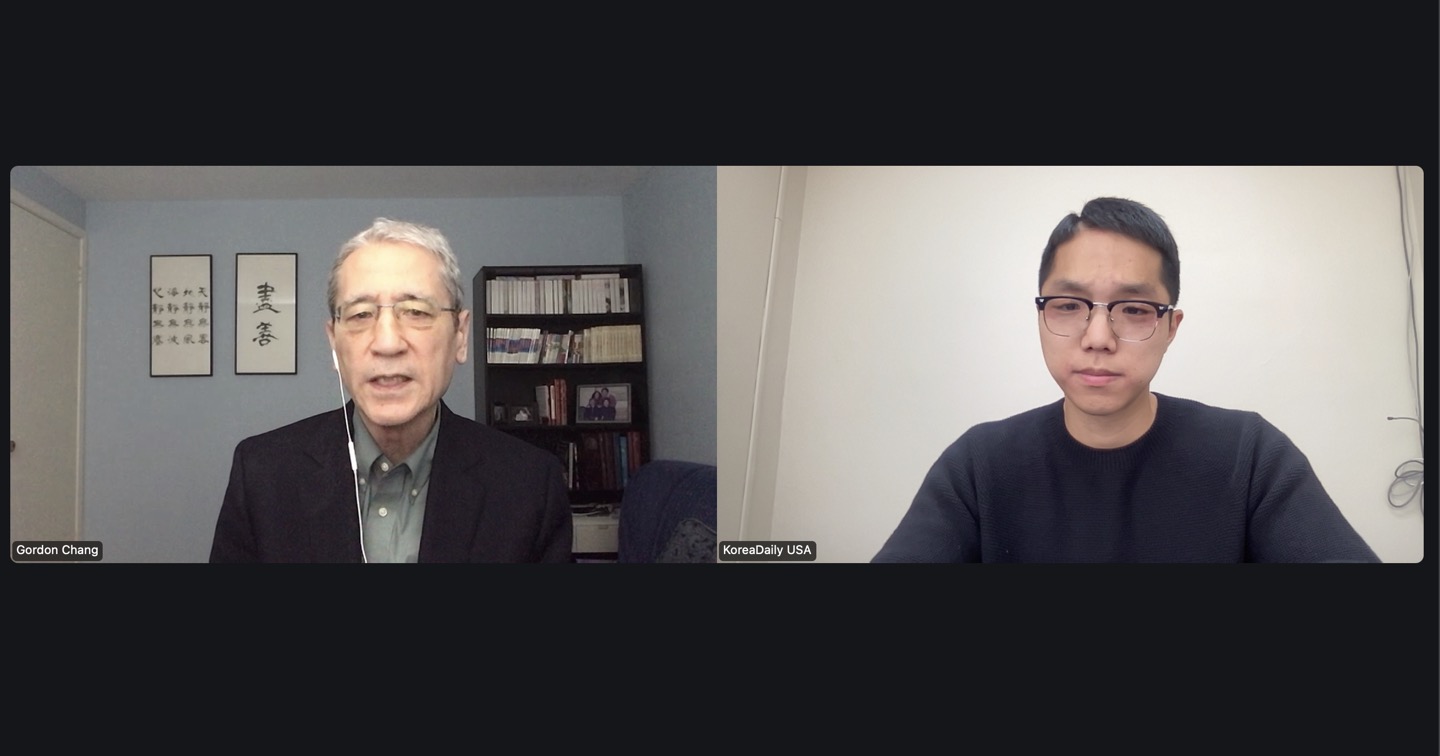Gordon Chang, a leading conservative commentator and lawyer known for his hawkish views on China and North Korea, issued a stark warning in a recent interview with The Korea Daily: South Korea is facing a political tipping point that could echo Venezuela’s descent from democracy into authoritarianism.

“If Lee Jae-Myung becomes president, South Korea could cease to exist as a democratic state,” Chang stated bluntly, referring to the Democratic Party’s frontrunner and leader of the opposition. “The risk is not abstract. It’s systemic. The Democratic Party no longer sees the Republic of Korea as worth preserving in its current form.”
Chang pointed to symbolic and policy-level evidence of what he claims is a dangerous ideological realignment on the Korean peninsula. “When Moon Jae-In visited Pyongyang, the South Korean flag was absent. That wasn’t a diplomatic oversight—it was deliberate messaging,” he said. “Democratic Party leaders are increasingly sympathetic to the North’s vision of a unified Korea—one potentially led from Pyongyang, not Seoul.”
Fear of Authoritarian Turn
Chang accuses the current Democratic leadership of being “ruthless” and strategically undermining democratic institutions to pave the way for a more centralized, authoritarian system. He criticized their attempts to impeach government officials, their stance on North Korea, and what he perceives as an erosion of South Korea’s military readiness.
“The conservatives are fragmented, disorganized, and lack a coherent message,” he noted. “If the left gains control of the presidency and legislature, Lee could push constitutional amendments that would irreversibly damage South Korea’s democratic framework.”
Chang also questioned the integrity of recent elections in South Korea. “The 2020, 2022, and 2024 elections were marred by voting irregularities and suspicious results that diverged significantly from pre-election polling,” he said. “The National Election Commission isn’t investigating—it’s covering up.”
He warned that the upcoming June 3rd presidential election is also at risk of “extensive ballot rigging” that could alter the outcome.
A Shift Toward China and a Blow to the U.S.-ROK Alliance
Chang expressed concern that a Lee Jae-Myung presidency would deepen ties with China while weakening alliances with the U.S. and Japan.
“Leftist leaders in Korea have often used anti-Japan sentiment to rally political support,” Chang said. “Today, the threat isn’t Tokyo—it’s Beijing and Pyongyang. If South Korea alienates Japan, it undermines the U.S.’s entire Indo-Pacific strategy.”
He added that China continues to treat Korea as a “vassal state,” and left-wing leaders have shown dangerous deference. “Moon Jae-In’s infamous ‘Three No’s’—no additional THAAD deployments, no South Korea-U.S.-Japan military alliance, and no participation in U.S. missile defense—essentially ceded sovereignty to China.”
Chang believes that if Lee follows a similar path, South Korea could become a proxy state under Chinese influence, posing significant strategic concerns for the United States and its allies.
Reflections on Trump’s Foreign Policy
Turning to U.S. affairs, Chang evaluated the legacy and current trajectory of Donald Trump’s policy platform. While he praised Trump for confronting China’s “predatory trade practices,” he criticized the administration’s failure to provide clarity and consistency in trade negotiations.
“Trump’s decision to impose tariffs was absolutely right,” he said. “But there’s a gap between intent and execution. The administration hasn’t communicated what it wants from trade partners. Without that, you can’t negotiate effectively.”
Chang sees Trump’s evolving tariff policy as both a success and a shortfall. “He changed the national conversation around China and trade, which was necessary,” he said. “But the lack of a defined follow-up strategy has left many countries unsure how to respond.”
Chang remains hopeful that a second Trump administration could address those shortcomings. “Manufacturing can grow behind a tariff wall, especially if paired with low taxes and investment incentives,” he said. “It’s been done before—just look at early 20th-century America.”
However, he was critical of Trump’s past engagement with North Korean leader Kim Jong-Un. “The summits were a mistake,” he said. “They suspended critical U.S.-South Korea military exercises and gave Kim legitimacy without real concessions. I don’t think Trump will repeat that.”
No Third Term, But a Lasting Legacy
Addressing speculation about Trump’s future ambitions, Chang was unequivocal: “The U.S. Constitution is clear—he can’t run for a third term. There’s no legal path for that.”
Nonetheless, he emphasized that Trump’s first-term decisions—especially on trade and China—have created a durable shift in U.S. policy discourse. “Whether you support Trump or not, he has reshaped the Republican platform in a way that will outlast his time in office.”
Final Warning
For South Korea, however, Chang’s final message was bleak: “It doesn’t matter how industrialized or advanced a country is—Venezuela was once prosperous too. If democratic norms are abandoned, collapse can come swiftly.”
He called on Korean conservatives to unite behind a single candidate, develop a persuasive vision, and defend the integrity of South Korea’s institutions. “Time is running out. This is not just about politics—it’s about the survival of a free Korea.”
Read the full transcript of Gordon Chang’s interview with The Korea Daily
BY KYEONGJUN KIM [kim.kyeongjun1@koreadaily.com]



![At One-Year Mark, Korean Americans Rate Trump’s Second Term Poorly U.S. President Donald Trump gestures as he and Canada's Prime Minister Mark Carney, not pictured, meet in the Oval Office at the White House in Washington on Oct. 7. [REUTERS]](https://www.koreadailyus.com/wp-content/uploads/2025/10/1008-Trump-100x70.jpg)